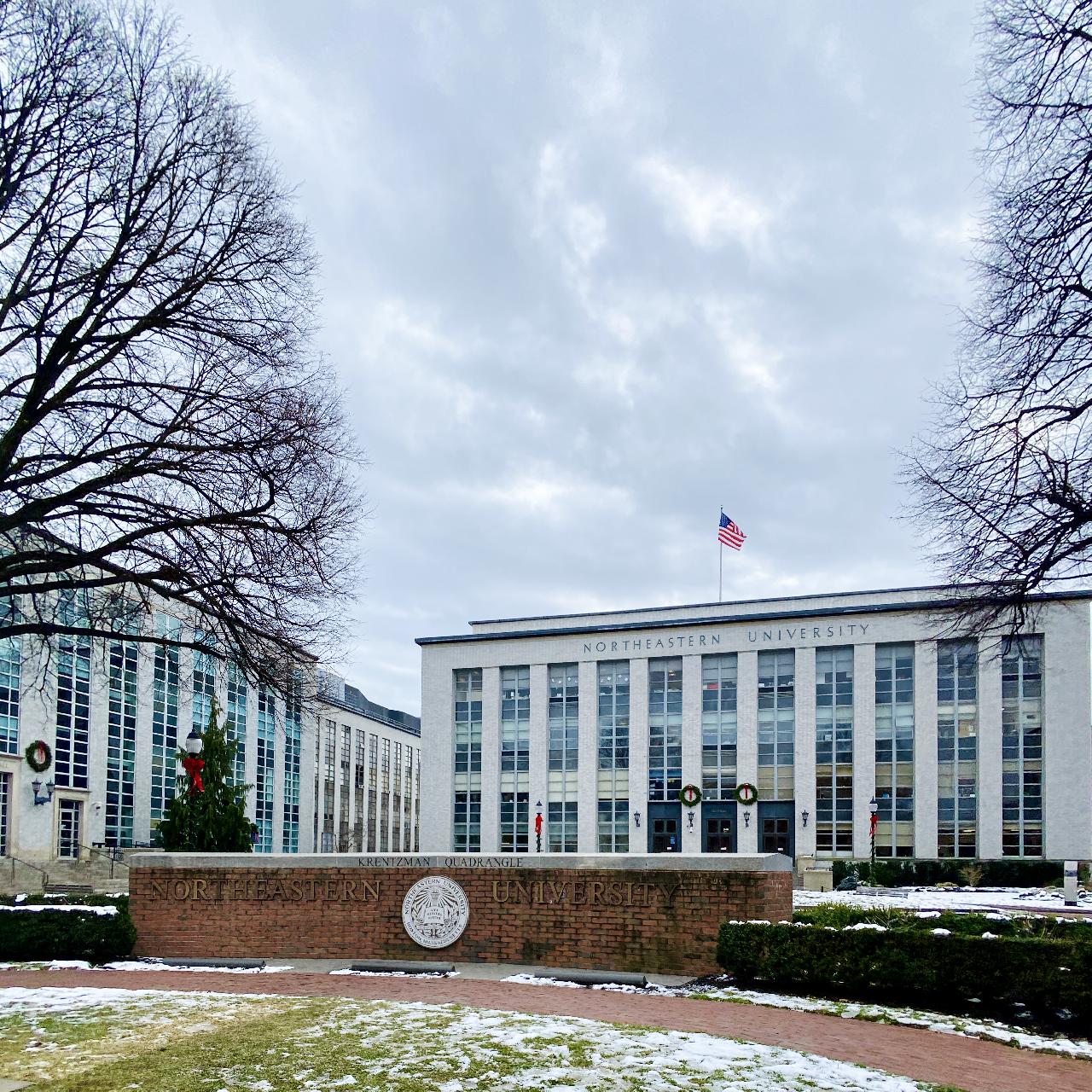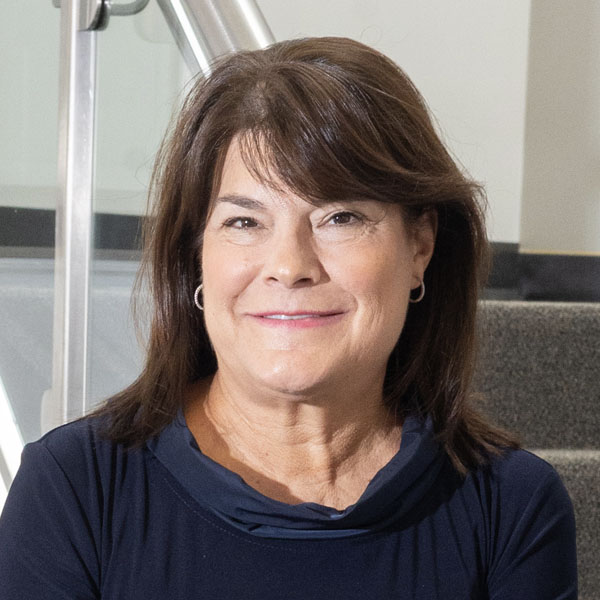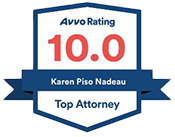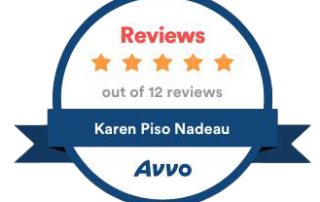
By: Karen Piso Nadeau, Esquire
Do Colleges have any responsibility for nonconsensual sexual encounters between students when the victim is intoxicated?
The Supreme Judicial Court of Massachusetts rejects Northeastern University’s claim that it has no duty or responsibility to protect a student while voluntarily intoxicated.
The Court provides guidance on what colleges and universities are expected to do to fulfill their duty to their students.
As summer comes to an end and college students begin their first semester in a variety of different ways to deal with the coronavirus’ continuing presence, those returning to college dormitories and life on campus have many restrictions to follow in an effort to stop the spread of the virus on college campuses. Many college students have signed pledges limiting their usual behavior to party and socialize in large crowds.
Just this past week, Northeastern University suspended 11 students for breaking COVID-19 policies without a tuition refund. The students were given 24 hours to leave their dorm. The students were found in a room together and found to be in violation of the school’s public health guidelines by gathering in a single room. They were being housed at the Westin Hotel in Boston, MA about a mile from campus. See Buzzfeednews.com.
Long before the coronavirus pandemic, we have sent our children off to college with hopes and dreams for their futures as well as concern and worry that our kids stay safe and free from harm. Parties, drinking, socializing and gathering in crowds are synonymous with college life. The dangers of college living -other than COVID- exist for college students as played out in another Northeastern incident that happened nearly 7 years ago on Halloween night. The case was recently decided by the Massachusetts highest court and provides insight on the extent of responsibility colleges and universities have to step up and shield our children from harm’s way when they are away at college outside of our protective arms.
Summary of events on the evening of Halloween 2013 leading to the lawsuit.
The case of Morgan Helfman v. Northeastern University & Others, (Massachusetts Supreme Judicial Court decided 7-27-20), arises from an alleged nonconsensual sexual encounter between two freshmen at Northeastern University on Halloween night of 2013. The plaintiff victim and alleged perpetrator were both first-year Northeastern students living in the same dormitory. Like many colleges, the Northeastern resident halls were supervised by resident assistants (RAs). The RAs were students hired to foster community within the dorms and provide assistance to resident students. The RAs were supervised by resident directors. RAs were expected to intervene if they encountered students violating “community norms”.
As summarized in the case:
The two freshmen attended a Halloween party hosted by an RA in a different dorm. They drank alcohol in the female’s dorm room before going to the party and brought more alcohol to the party concealed in a plastic soda bottle. While at the party, the female played drinking games and consumed alcohol. RAs also underaged observed underage students drinking alcohol. The female became intoxicated and vomited repeatedly in the RA’s bathroom. Acquaintances gave her water and crackers and offered to walk her home, but she declined.
The male volunteered to escort her to the dorm where they both lived. They kissed on the way home and the female stumbled and they fell. She texted her roommate on the way back stating she was coming home and was really sick. When they arrived at the dorm, the female leaned on the counter for support as the proctor checked her id and she walked unsteady to the elevator. They went to the male’s room where he initiated sex with her.
She later told police that although she was uncomfortable, she did not want to hurt his feelings. She also said she did not know if he believed she consented. She told her roommate the next morning that if she had been sober, she would have said something to stop the encounter. The roommate informed an RA with the female’s permission.
The next day, the female and her mother were escorted by Northeastern Police from the dorm to a local hospital where the female was examined, and an evidence collection kit was completed. Northeastern Police investigated and decided not to file criminal charges against the male and did not report the incident to Boston Police. The two students attended a student conduct board hearing that found the male did not commit the offense of sex assault and penetration.
Intoxicated Female files lawsuit against Northeastern claiming its negligence caused her to be harmed.
The female freshman claimed Northeastern was negligent in failing to protect her from sexual assault, was responsible for the unreasonable acts of its RAs and failed to adequately train and supervise its staff. The female student filed a lawsuit against Northeastern and its executives. Northeastern filed for summary judgment, and a Superior Court judge granted summary judgment for Northeastern ruling that the university had no duty to protect the student under the circumstances. The female plaintiff appealed the decision.
The Supreme Judicial Court rejects Northeastern’s argument that it had no duty to protect students from harm of voluntary alcohol consumption.
Although the Massachusetts Supreme Judicial Court affirmed the judgment in favor of Northeastern in this particular case, the court rejected Northeastern’s argument that colleges and universities have no duty to protect students from harm of voluntary alcohol consumption. The court confirmed that courts have long recognized that universities have a duty to protect students from foreseeable criminal acts of third parties. The court held that “such a duty exists even when those criminal acts are made possible by the intoxication of the student victim”. However, the SJC concluded that there was no duty to protect in this particular case where Northeastern had at best minimal knowledge of the conditions that gave rise to the harm.
The court determined that the assault in October 2013 was unforeseeable. The Supreme Judicial Court recognized that “a college or university will sometimes owe a duty to protect its students from the harms associated with alcohol-related emergencies.” The court summarized the general rule that one does not have a duty to others to take action to rescue or protect them from conditions one has not created. Dzung Duy Nguyen v. Massachusetts Inst. Of Technology, 479 Mass. 436, 448 (2018). However, the court recognized exceptions. The female student argued that one exception applied whereby Northeastern owed her a duty to protect her by virtue of the special relationship between the university and its students. She also argued that the RAs exposed her to foreseeable criminal acts of a third party and that Northeastern had a duty to protect her from the resulting harm.
Massachusetts highest court establishes that a special student-university relationship exists even if the student voluntarily consumes alcohol.
The court agreed that a special student-university relationship did exist. However, in this case Northeastern had no duty to take steps to prevent the alleged sexual assault because it was not reasonably foreseeable that the plaintiff female would suffer imminent physical harm due to her intoxication at the time. The court referenced a 1983 case that first recognized that colleges and universities have a special relationship with their students which imposes a “duty … to protect their resident students against the criminal acts of third parties.”
The court stated that this special relationship was “grounded both on the reasonable expectation, fostered in part by colleges themselves, that reasonable care will be exercised to protect resident students from foreseeable harm.” Mullins v. Pine Manor College, 389 Mass. 47. 54 (1983). Also, universities “generally undertake voluntarily to provide their students with protection from the criminal acts of third parties.” Id.
Northeastern claimed that despite any special relationship, there was no duty to protect a student while voluntarily intoxicated. Essentially, Northeastern’s position was that they had no responsibility to protect the plaintiff female from any harm resulting from her choice to consume alcohol. The Supreme Judicial Court disagreed. The court noted that it was unrealistic to require colleges to police all on-campus use of alcohol. College students were expected to manage their own social activities while sometimes underage. Despite this, the court held that this does not mean a student gives up any reasonable expectation of protection from his or her college or university if the student becomes intoxicated.
The court refused to accept the notion of college immunity for the consequences of student alcohol consumption. The court reasoned that the fact colleges do not have to police the morals of its students did not mean the colleges could disregard the students’ physical safety. Mullins. The court also stated that the bystander era of no duty appeared to be drawing to a close and “universities are clearly not bystanders or strangers in regard to their students.” See, Dzung Duy Nguyen.
The court rejected Northeastern’s argument that universities have no special relationship with voluntarily intoxicated students. The court addressed the scope of a college ‘s or university’s duty to its intoxicated students. The court recognized “competing considerations” such as student’s safety and autonomy and the burden on the university. The court emphasized the most significant factor in determining the scope of a college ‘s or university’s duty is “foreseeability” as defined by whether the university reasonably could foresee that he or she would be expected to take affirmative action to protect plaintiff and could anticipate harm to plaintiff if it failed to do so.
The court acknowledges that college students are susceptible to risky drinking behaviors and a student may reasonably rely on his or her college for aid in the event of an alcohol emergency.
The Supreme Judicial Court acknowledged many college students are particularly susceptible to risky drinking behaviors. Colleges and universities recognize these foreseeable risks and have taken reasonable measures to protect students in the event of an alcohol related emergency. Northeastern for example directs students to contact Northeastern Police for assistance and offers amnesty from punishment for students who reach out for help in an emergency involving underage consumption of alcohol. The court found it foreseeable that a student will reasonably rely on his college for aid in the event of an alcohol related emergency. Universities are in the best, if not only, position to assist. See Dzung Duy Nguyen.
The court ultimately concluded that a university has a special relationship with its students and a duty to take reasonable measures to protect them from harms associated with alcohol related emergencies in narrow circumstances. Actual knowledge of conditions that lead a reasonable person to conclude a student on campus is in imminent danger of serious physical harm due to alcohol intoxication and is so intoxicated the student can’t help himself or herself is the standard used to determine to what extent the college or university has a duty to the student. There is a duty to take reasonable measures to protect the student from harm if the university is aware the student has an imminent risk of harm. The court stated the precision of a medical doctor is not required. What is required is merely a recognition that a student is dangerously intoxicated. The college or university must act reasonably under the circumstances.
Striking a balance between the student’s autonomy and the need to protect the student’s wellbeing.
The duty imposed on a college or university to protect its intoxicated students is defined by striking a balance between respecting the student’s autonomy and the need to protect the student’s wellbeing. The court made clear that the duty may mean the university or college may do little or nothing to meet the obligation or it may mean calling for medical or other assistance.
In the case of the female on Halloween of 2013, the court concluded that despite the special university-student relationship, Northeastern owed no duty to this female freshman to protect her in this case in these circumstances. There are several important facts that the court relied upon in deciding against the female in her case against Northeastern. These facts include the following: there was no indication the male posed a risk; there was no history of sexual assaults to Northeastern’s knowledge; and there were no prior concerns regarding this male student. The court found that Northeastern could not have reasonably foreseen that this female plaintiff would be subjected to criminal acts or harm.
More importantly in deciding the case in favor of Northeastern, the court stated there was no indication that the lack of any information was due to “willful blindness”. The RAs lacked sufficient information to conclude the female student was at risk of assault. The court again noted facts it relied upon in making this determination such as the male student was not acting inappropriately to the female student prior to the alleged assault and there was no evidence the male was aggressive or acting sexually.
The court recognizes that sexual assaults on campus are a major public health concern with over half of college sexual assaults involving alcohol.
The court recognized that sexual assaults on college campuses are a “major public health” problem and “over half of all college sexual assaults involve alcohol and alcohol is the number one drug used to facilitate sexual assault.” Despite the recognized relationship between alcohol and sexual assault on campus, it is not sufficient to impose a duty on Northeastern in this case. Again, the court described the facts of this incident on Halloween night 2013 leading the court to conclude it was not apparent to Northeastern that this female student was at imminent risk of physical harm due to her alcohol intoxication. The female student did not lose consciousness and she was assisted by another person. The Supreme Judicial Court concluded that it was not reasonably foreseeable the female plaintiff was in peril at the time of the alleged assault. The court also stated that there was no evidence Northeastern failed to train or supervise its RAs.
The Massachusetts Supreme Judicial Court refused to have colleges and universities blame the victim to escape any responsibility.
At first blush, it looks like Northeastern and other colleges and universities won and got a very favorable decision from the Massachusetts highest court against this first-year female student. However, the court made very clear the particular facts of that Halloween night of 2013 that the court relied upon in deciding against this female who alleged sexual assault by a fellow first-year student living in the same dorm. The court crystalized the analysis that would be used for future cases in determining the negligence of colleges and universities when one of their students is voluntarily drunk and harmed on campus. The court turned to the traditional analysis of reasonable foreseeability in deciding whether a college or university breached its duty of care to an intoxicated student harmed on campus.
This analysis can be easily understood by asking the following questions:
- What did the university or college know at the time?
And arguably more importantly:
- What should have the college or university known at the time?
The highest court of Massachusetts rejected Northeastern’s argument that a college or university had no duty or responsibility to a student who voluntarily consumes alcohol and becomes intoxicated. By rejecting Northeastern’s stance that it had no responsibility, the court made clear that universities and colleges can’t escape liability by blaming the victim and placed colleges and universities on notice that they may be held accountable in future cases involving students who voluntarily consume alcohol, become intoxicated and are injured or harmed.
The Supreme Judicial Court set forth the special relationship that exists between colleges and universities and its students requiring the colleges and universities to take reasonable steps to protect their students they know are in “imminent danger” and can’t seek help for themselves. The court dismissed the attempts by Northeastern for immunity simply because its student chose to consume alcohol and become drunk. The court made it clear to colleges and universities that they may not be free from blame and may be held responsible in other situations. The court emphasized that colleges and universities are not strangers or bystanders with respect to its students.
The case motivates colleges and universities to take steps to protect their students from the harm that comes with consuming alcohol and getting drunk.
This case involving two drunk students leading to an alleged sexual assault places all colleges and universities on notice that they cannot escape their duty and responsibility to their students by saying the victim chose to drink. This case will in all likelihood motivate colleges and universities in Massachusetts to take further steps to protect their students from the harm and dangers that come with students consuming alcohol and getting drunk. These steps will likely include renewed efforts to train and supervise its employees as well as providing adequate education and resources dealing with alcohol consumption, warning signs and its dangers. The case provides parents of college students with some comfort knowing that the colleges and universities are not off the hook simply because a student chose to drink and got drunk and provides an incentive for the colleges and universities to take responsibility and do their part to protect our children that we place on their campus.
As a victim of an accident, make sure everything is done to protect your interests. The lawyers at Nadeau Harkavy LLC help people and their families recover compensation for their losses in serious injury and wrongful death cases arising from accidents at the hands of someone else’s wrongdoing. We help you navigate the rules and insurance claims process, and we are dedicated to get you the compensation you deserve. If you have any questions about your legal rights relating to an accident, feel free to contact us for a free no obligation consultation today at 617-674-7640.
Meet The Lawyers
With 60 years of combined experience serving injured victims in Massachusetts, our team has collaborated for nearly two decades, delivering a proven track record of outstanding results for clients. Guided by a philosophy of treating clients as we would our own family, we strive to ease our clients' journey from the initial phone call to case resolution. Committed to competing and fighting vigorously, we aim to hold insurance companies accountable to the fullest extent of the law. Our belief in close communication ensures the best possible outcomes, and our approachability makes us readily available to you. Entrust us with your case, allowing you to focus on your physical, emotional, and financial recovery.
Massachusetts Personal Injury Lawyers
Massachusetts Personal Injury Lawyers with over 60 Years Combined Experience Representing Those Injured in Accidents.












